Around the States: Recent News Stories
May 16, 2025 News Around the States
- Michigan Department of Insurance and Financial Services Receives NASCUS Reaccreditation
- In Connecticut, The Credit Union Mergers Keep Coming
- Legalizing Exploitation: Why Maryland Must Reject Predatory Lending Apps
- Summit Credit Union Awards $55,000 in Scholarships
- Indiana Members Credit Union Announces 2025 Cancer Awareness Card Beneficiary
Michigan Department of Insurance and Financial Services Receives NASCUS Reaccreditation
 The National Association of State Credit Union Supervisors (NASCUS) is pleased to announce that the Michigan Department of Insurance and Financial Services (DIFS), Office of Credit Unions has successfully earned reaccreditation.
The National Association of State Credit Union Supervisors (NASCUS) is pleased to announce that the Michigan Department of Insurance and Financial Services (DIFS), Office of Credit Unions has successfully earned reaccreditation.
Michigan was the first state to receive NASCUS Accreditation in 1989.
“This reaccreditation demonstrates our department’s reliable supervisory programs and commitment to the rigorous standards set by NASCUS,” said Director Anita Fox. “We appreciate the support and partnership that NASCUS provided throughout the reaccreditation process, which is essential for the state-based regulation of credit unions.”
This achievement follows a rigorous series of in-depth reviews and evaluations conducted by the NASCUS Performance Standards Committee (PSC), a panel of experienced regulators from accredited state agencies. The NASCUS Accreditation process involves a comprehensive assessment and continuous monitoring to ensure the highest standards of regulatory excellence are met and maintained. Read more
In Connecticut, The Credit Union Mergers Keep Coming
Tyfone
 The third tie-up announced in the past week will create an $850 million-asset credit union in the Constitution State.
The third tie-up announced in the past week will create an $850 million-asset credit union in the Constitution State.
Connecticut has been a hotbed for credit union merger activity of late. Most recently, Nutmeg State Financial Credit Union in Rocky Hill and CrossPoint Federal Credit Union in Hamden on Monday announced plans to combine. The merger will result in an $850 million-asset institution with 12 Connecticut branches operating under the Nutmeg brand. The organizations said they anticipate the merger will be finalized in October 2025.
Nutmeg State said that exploring mergers is a part of its ongoing strategy to find ways to enhance long-term value for its 54,000 members. Nutmeg members will now have access to four new branches in New Haven and the surrounding areas while CrossPoint members will see significant product and service advantages. Nutmeg CEO John Holt will remain chief executive of the combined organization, and CrossPoint CEO Darlene White will remain in an undefined leadership role.
“In this environment, with competition and a highly unpredictable political landscape, scale matters,” Holt said. “Our desire is to gain as much scale and efficiency as we can to provide maximum value to our membership.” Holt said the credit union will continue to seek strategic partners in Connecticut and beyond. In June, the $703 million-asset Nutmeg State Financial and $105 million-asset First Bristol Federal Credit Union in Hartford completed their merger. Read more
OPINION Legalizing Exploitation: Why Maryland Must Reject Predatory Lending Apps
Martha Bergmark, Maryland Matters
 On Gov.Wes Moore’s desk sits House Bill 1294, which would give predatory, app-based payday lenders a legal green light to exploit Marylanders.
On Gov.Wes Moore’s desk sits House Bill 1294, which would give predatory, app-based payday lenders a legal green light to exploit Marylanders.
If signed into law, it would exempt these lenders from Maryland’s hard-won protections against usury, deceptive practices, and discrimination based on race or sex. The governor should veto this bill.
HB1294 opens a loophole that would allow new, app-based payday lenders to bypass Maryland’s 33% annual interest rate cap. These digital lenders already operate in the state, often illegally, offering small-dollar loans with effective annual interest rates that regularly exceed 100% — way higher than even the most expensive credit cards. The Maryland General Assembly, instead of cracking down on these scofflaw payday lenders, chose to legalize and protect their harmful practices.
Entrenching these extractive companies in Maryland will financially devastate families. These lenders rely on repeat borrowing to make a profit. Borrowers are typically advanced just a small amount, usually less than $100, and charged high fees each time. These fees are sometimes disguised as “tips” or voluntary payments. The goal is to keep borrowers returning again and again. Read more
Summit Credit Union Awards $55,000 in Scholarships
 Summit Credit Union is pleased to announce awarding $55,000 in scholarship grants for fall 2025 and spring 2026 semesters.
Summit Credit Union is pleased to announce awarding $55,000 in scholarship grants for fall 2025 and spring 2026 semesters.
Fifty-seven students were selected based on their academic achievements, their involvement in school, and community related activities. The scholarship funds will be used towards each recipient’s college-related expenses. Since inception, Summit Credit Union has awarded over $530,000 in scholarships and has helped 536 students in their pursuit of knowledge.
Summit Credit Union offers scholarships to any member who is an adult learner or high school senior and expects to attend an educational program beyond high school as a full-time student. Scholarships are given through the Elizabeth N. and James V. Hamilton Scholarship Fund. Applications for the next academic year of 2026-2027 can be submitted for consideration on our website beginning October 1, 2025. Read more
Indiana Members Credit Union Announces 2025 Cancer Awareness Card Beneficiary
 Indiana Members Credit Union (IMCU), Central Indiana’s largest credit union, is pleased to announce Strides for Sarcoma as the new member-nominated beneficiary for its Cancer Awareness Debit Card.
Indiana Members Credit Union (IMCU), Central Indiana’s largest credit union, is pleased to announce Strides for Sarcoma as the new member-nominated beneficiary for its Cancer Awareness Debit Card.
The IMCU Cancer Awareness Debit Card provides members an opportunity to support a different cancer-related organization each year. A portion of each signature transaction made with this card March 1, 2025, through February 28, 2026, up to $10,000, will be donated to Strides for Sarcoma.
The card is available for issue to members at IMCU’s 31 Indiana locations. The IMCU Cancer Awareness Debit Card is an option to members with a free checking account and can be issued immediately via IMCU’s instant issue program, which allows members to receive their debit card on the spot. Read more
May 9, 2025 News Around the States
- NY Lawmakers Aim to Block Elon Musk’s Attempt to Turn X into a Venmo, Zelle Competitor
- Senator urges DoD to Not Renew Contract Until CU’s Overdraft/NSF Practices Can be Reviewed
- North Dakota Litchville-Marion LifeSmarts Team Earns National Recognition
- Pennsylvania House Passes Recreational Marijuana Legalization
- Why This Minnesota Bank Dropped Its Overdraft Fees
NY Lawmakers Aim to Block Elon Musk’s Attempt to Turn X into a Venmo, Zelle Competitor
Jimmy Vielkind, WNYC/Gothamist
 New York could be a stumbling block for billionaire Elon Musk’s attempts to launch a person-to-person payment system on his platform X.
New York could be a stumbling block for billionaire Elon Musk’s attempts to launch a person-to-person payment system on his platform X.
Two state lawmakers from Manhattan sent a letter this week urging the state’s Department of Financial Services not to issue a money-transmitter license to X Corp., which is seeking authorization from all 50 states to launch the X Money payment system.
“What we’re talking about is nothing less than Elon Musk becoming a permanent part of the country’s financial infrastructure — with access to enormous quantities of consumer data, including the data of New Yorkers,” said Assemblymember Micah Lasher, a Democrat from the Upper West Side. “I think it would be grossly irresponsible and contrary to the law.”
X Money is part of Musk’s goal to make X, formerly Twitter, an “everything app” that allows users to conduct financial transactions, receive media and communicate with each other. Moving into payment processing would make it a rival to services like Venmo, Zelle and Apple Pay. X Corp. announced a partnership with Visa in January to operate its own payment system.
There is no single federal license for money transmission, so X Corp. has been contacting state banking and financial services regulators. It has secured the required approvals from 42 states and the District of Columbia, but not New York. Read more
Senator urges DoD to Not Renew Contract Until CU’s Overdraft/NSF Practices Can be Reviewed
CU Daily
 Sen. Elizabeth Warren (D-MA) is calling on the Defense Department to hold off on renewing a contract it has with Frontwave Credit Union until its overdraft fees and “other abusive practices” can be reviewed.
Sen. Elizabeth Warren (D-MA) is calling on the Defense Department to hold off on renewing a contract it has with Frontwave Credit Union until its overdraft fees and “other abusive practices” can be reviewed.
The $1.4-billion, Oceanside, Calif.-based Frontwave CU, which primarily serves Marines at the Marine Corps Recruit Depot, many of them young, was the subject of significant scrutiny and media reporting in 2024 after data compiled by the state of California showed that in 2022 it had collected approximately $8 million in overdraft penalties, or nearly 12% of its overall revenue. That figure was about triple the average among all state-chartered credit unions, according to a review conducted as part of KPBS investigation.
KPBS, which extensively reported on the data that had been released by the state and particularly on Frontwave Credit Union, said it found Frontwave’s financial records show it “easily could have lost money” in recent years without income from overdraft fees. Read more
North Dakota Litchville-Marion LifeSmarts Team Earns National Recognition
 The North Dakota Department of Financial Institutions is proud to announce that the Litchville-Marion High School LifeSmarts team (known as the “Money Hounds”) has achieved an outstanding second-place finish at the National LifeSmarts Competition held this past weekend in Chicago, Illinois.
The North Dakota Department of Financial Institutions is proud to announce that the Litchville-Marion High School LifeSmarts team (known as the “Money Hounds”) has achieved an outstanding second-place finish at the National LifeSmarts Competition held this past weekend in Chicago, Illinois.
This remarkable achievement reflects the hard work, dedication, and academic excellence of the students, coaches, and school community. The Department of Financial Institutions organizes the state level competition each year. LifeSmarts is a nationally recognized educational competition that challenges middle and high school students to develop real-world consumer and life skills in areas such as personal finance, health and safety, the environment, technology, and consumer rights.
“LifeSmarts helps prepare the next generation of citizens by providing real-world education on topics including financial literacy,” said Lise Kruse, Commissioner of the Department of Financial Institutions. “We are proud to support a program that builds confidence, leadership, and knowledge in our students.” Read more
Pennsylvania House Passes Recreational Marijuana Legalization
George Stockburger, ABC27 News
The vote on Wednesday afternoon passed on party lines, 102 Democrats voting yea and 101 Republicans voting nay. Earlier this week, the bill passed through a House committee, also on a party-line vote.
The bill, known as the Cannabis Health & Safety Act, goes to the Republican-controlled State Senate, where its future is uncertain. A similar bill passed in the Democrat-controlled State House last year but did not advance through the Senate. House Democrats say the bill would give adults 21 and older “the power of choice,” as well as create a public retail system “with accountability.” Democrats say the bill also protects both residents’ health and Pennsylvania minors, and will “bring home billions of dollars.” Read more
Why This Minnesota Bank Dropped Its Overdraft Fees
John Reosti, American Banker
For Stearns Bank CEO Kelly Skalicky, the smart deposit strategy involves paying out more in interest and collecting fewer fees.
In December, the St. Cloud, Minnesota-based Stearns said it would waive fees on automatic teller machine withdrawals. Last month, Stearns eliminated its $30 charge on overdrafts. Banks cutting back on overdraft charges made big news in 2021 and 2022. A number of institutions announced plans to reduce fees. Others, including Detroit-based Ally Financial, Capital One Financial and Citigroup, eliminated them altogether. The Rosemont, Illinois-based Wintrust Financial followed suit in 2023. Read more
May 2, 2025 News Around the States
- Credit Unions Take Stand Against CT Interchange Fee Bill; Some Retailers Show Support
- Related Reading: Illinois AG, Durbin Defend State Card Fee Law
- In Texas: Still Charging Overdraft Fees? You’re Doing It Wrong
- PODCAST: Community Impact: How Credit Unions Leverage Digital for Good
- In Nevada: Silver State Schools Credit Union & the People Over Profit (POP) Foundation Award $80,000 in Scholarships to Ten Southern Nevada High School Seniors
Credit Unions Take Stand Against CT Interchange Fee Bill; Some Retailers Show Support
David Krechevsky, Hartford Business Journal
 A bill that would prohibit credit and debit card payment networks from including sales and use taxes in so-called interchange fees has drawn strong opposition from credit unions.
A bill that would prohibit credit and debit card payment networks from including sales and use taxes in so-called interchange fees has drawn strong opposition from credit unions.
Senate Bill 1460 is one of seven bills to be discussed Friday during a public hearing conducted by the state legislature’s Finance, Revenue and Bonding Committee. The bill, called An Act Concerning Interchange Fees on Electronic Payment Transactions, was raised by the committee.
In testimony submitted in advance of Friday’s hearing, Bruce Adams, president and CEO of the Credit Union League of Connecticut, said the bill “would have an obvious, immediate and detrimental impact on Connecticut’s credit unions.” Adams states that interchange fees are “negotiated in the private sector, they are paid in the private sector, and they bear no impact on the state’s accounts, budget, or revenues.” He explains that when a retailer pays an interchange fee, it is paying a private company to allow consumers to use a credit or debit card instead of cash.
The consumer is legally obligated to pay both the price of the product or service, as well as any taxes on the purchase. The consumer and retailer agree to let a financial institution advance the money owed to the retailer. The financial institution pays both the price and the tax to the retailer and then seeks reimbursement from the consumer. The retailer keeps the purchase price and remits the tax it collected to the state. Read more
-
Related Reading: Illinois AG, Durbin Defend State Card Fee Law
In Texas: Still Charging Overdraft Fees? You’re Doing It Wrong
Kendall Garrison, CEO Amplify Credit Union/The Financial Brand
 Three years ago, Texas-based Amplify Credit Union took a decision to break with overdraft fee income. Our results challenge conventional wisdom: We have since seen a steady decrease in deposit charge-offs, and now we’ve expanded fee-free programs to commercial customers, too.
Three years ago, Texas-based Amplify Credit Union took a decision to break with overdraft fee income. Our results challenge conventional wisdom: We have since seen a steady decrease in deposit charge-offs, and now we’ve expanded fee-free programs to commercial customers, too.
As the CEO of a Texas-based financial institution, I know one thing for sure: If your company is in the news, it’s probably not for the reasons you’d like. Case in point: Over the past few weeks, banks and credit unions have made national headlines for pushing lawmakers to increase the amount of money they can charge in overdraft fees.
Honestly, I can’t believe this is a hill we’re still choosing to die on. Overdraft fees are predatory, regressive and outdated. The only reason they still exist at scale is because they work for the income statement, not the customer. And with the average American feeling the squeeze on their wallet, our dependence on overdraft fees isn’t just a moral problem. It’s a strategic liability. If you run a financial institution and your business model still depends on overdraft fees, it’s time for a hard reset.
How and Why We Flipped the Switch
On February 2, 2022, Amplify Credit Union turned off our bank fees forever. No more overdraft fees, ATM fees, transfer fees – gone, gone, gone. We walked away from at least $2 million in annual fee income, and we did so because, frankly, an income model dependent on charging a minority of members the majority of fees no longer made sense to us. This wasn’t an overnight decision. We ran the numbers. We projected the impact. And we decided to rebuild our banking experience from the ground up. Read more
PODCAST: Community Impact: How Credit Unions Leverage Digital for Good
 In this episode of the Digital Banking Podcast, Josh DeTar sat down with Tanis Bagby, Cash Management Officer at P1FCU, to discuss the power of community engagement in the digital age.
In this episode of the Digital Banking Podcast, Josh DeTar sat down with Tanis Bagby, Cash Management Officer at P1FCU, to discuss the power of community engagement in the digital age.
Bagby shared her career journey at the credit union, highlighting the importance of building relationships with members. She discussed her role as host of P1FCU’s podcast, Making Sense of Money, emphasizing the value of providing financial education and support through relatable, long-form content. Bagby explained how the podcast aims to meet listeners where they are, offering practical advice on topics like budgeting, home buying, and financial planning. She stressed the importance of empathy and accessibility in financial conversations, especially in a digital-first world. Bagby also touched on the role of community partnerships and how they enhance the credit union’s mission of serving members.
In Nevada: Silver State Schools Credit Union & the People Over Profit (POP) Foundation Award $80,000 in Scholarships to Ten Southern Nevada High School Seniors
Credit Union Connection/People Over Profit (POP) Foundation
Silver State Schools Credit Union (SSSCU), in partnership with its charitable arm, the People Over Profit (POP) Foundation, proudly announces the ten recipients of its 2025 Scholarship Program.
These exceptional Southern Nevada High School Seniors will each receive a $2,000 scholarship for the upcoming fall semester—renewable annually for up to four years, totaling up to $8,000 per student. Since 1989, SSSCU has awarded over $1.3 million in scholarships to support the educational journeys of Nevada students. The POP Foundation Scholarship Program recognizes students who exemplify academic excellence, leadership, volunteerism, and commitment to commu- nity service. Each scholarship is named in honor of current and past members of the SSSCU Board of Directors, Executives, as well as the POP Foundation itself. Read more
Apr. 25, 2025 News Around the States
- Goodbuy wins NACUSO’s 2025 Next Big Idea Competition
- In Maryland: Crypto Kiosk Scams Target of Proposed Regulations
- Wings/Ent Merger Creates Nation’s 10th Largest Credit Union
- SECU Foundation Awards $480,000 in Mission Development Grants to Support 12 North Carolina Non-profits
Goodbuy wins NACUSO’s 2025 Next Big Idea Competition
CUInsight/Goodbuy

Photo by Robbie Young
Goodbuy, a groundbreaking community commerce platform, has been named the winner of the 2025 Next Big Idea Competition by the National Association of Credit Union Service Organizations (NACUSO).
The announcement was made live at the NACUSO Reimagine Conference at the Wynn in Las Vegas. The Next Big Idea Competition celebrates innovation poised to drive collaboration and growth across the credit union ecosystem. Goodbuy stood out for its values-driven, tech-enabled approach to helping credit unions engage small businesses and strengthen local economies.
“This recognition affirms what we’ve believed from the beginning—that credit unions are uniquely positioned to be community catalysts,” said Cary Fortin, Co-Founder of Goodbuy. “By connecting members with local businesses through a credit union-branded marketplace, we’re turning everyday transactions into tangible impact.”
The Goodbuy platform enables credit unions to offer exclusive, values-aligned benefits to their members while providing local businesses with a powerful new marketing channel. Built for easy implementation, the platform supports deposit growth, card usage, and SMB acquisition—all with minimal lift and measurable results. Read more
In Maryland: Crypto Kiosk Scams Target of Proposed Regulations
Zamone Perez, Public News Service
A bill in the Maryland General Assembly would regulate cryptocurrency kiosks, the more than 700 ATM-like machines for virtual currencies around the state.
 The FBI received more than 4,400 complaints about the kiosks in 2023, according to a report on cryptocurrency scams. Nearly 60% of complaints came from people over the age of 60. The legislation would establish registration and operating requirements for the kiosks in the state, enforced by the Commissioner for Financial Regulation.
The FBI received more than 4,400 complaints about the kiosks in 2023, according to a report on cryptocurrency scams. Nearly 60% of complaints came from people over the age of 60. The legislation would establish registration and operating requirements for the kiosks in the state, enforced by the Commissioner for Financial Regulation.
Tammy Bresnahan, senior director of advocacy for AARP Maryland, said crypto kiosks have become a new way for scammers to target people. “These kiosks have become a haven for scammers to call people to say, ‘There’s a problem with your account. You need to take money — $4,500 in cash — and deposit it into this nearby cryptocurrency kiosk because your account has been compromised,'” Bresnahan explained. The total losses from cryptocurrency kiosks in 2023 exceeded $150 million. Read more
UPDATE: On Wednesday, April 23, 2025, Governor Moore signed SB305, which was brought forth by Senator Beidle, to address the issues associated with fraud carried out through crypto kiosks. “This bill is an important step forward and was drafted with full input from industry as well as consumer advocacy groups, particularly AARP. Kudos to all involved in this process. OFR will work to implement this bill and I am confident that it will make a positive difference for the citizens of Maryland,” said Commissioner Tony Salazar, Maryland Department of Labor, Office of Financial Regulation.
Wings/Ent Merger Creates Nation’s 10th Largest Credit Union
Tyfone
The combined company will serve more than a million members across six states from Florida to Colorado.
San Diego County Credit Union and California Coast Credit Union did not hold the title for long. The two San Diego-based credit unions on April 11 announced plans to combine in the largest credit union merger struck in 2025. Until Wednesday.
That’s when Wings Credit Union in Apple Valley, Minnesota, announced a merger of equals with Ent Credit Union in Colorado Springs, Colorado. Both credit unions are the largest in their respective states. The newly formed credit union will have roughly $19.2 million of assets making it the 10th largest credit union in the country, just behind $19.5 million-asset Alliant Credit Union in Chicago.
The institution, which will use the Wings name, would also serve nearly one million members. “With this new combined entity, we are excited to offer members access to a combined 91 locations in Colorado, Florida, Georgia, Michigan, Minnesota, and Wisconsin,” said Chad Graves, CEO of $9.8 million-asset Ent. Read more
SECU Foundation Awards $480,000 in Mission Development Grants to Support 12 North Carolina Non-profits
SECU Foundation is pleased to announce its first cohort of Mission Development Grant (MDG) recipients for 2025, welcoming 12 new organizations to the program including non-profits in three counties – Chowan, Currituck, and Franklin – that are receiving first-time funding outside of scholarships and loans. The new grantees are working to address domestic violence and exploitation, homelessness, substance misuse, health and well-being, housing, and community support services. Read more
Apr. 18, 2025 News Around the States
- The Rising Tide of Fraud: How Credit Unions Can Fight Back
- Oregon Credit Union to Buy In-State Bank
- Credit Union Leaders Cite Consolidation and Relentless Pursuit of Scale as Top Industry Challenges
- Block Agrees to Pay $40M New York Penalty
The Rising Tide of Fraud: How Credit Unions Can Fight Back
Jeffrey Kusler, Journey Federal Credit Union/CUSO Magazine
 Within minutes, a member’s entire financial life was stolen
Within minutes, a member’s entire financial life was stolen
A 24-year-old credit union member recently fell victim to a devastating fraud scheme. A scammer, posing as a Verizon representative, tricked him into providing access to his phone. Within minutes, the fraudster had transferred the eSIM to another device, effectively stealing the member’s phone digitally.
Once they had control of the phone, they had everything—his brokerage account, fintech accounts, email, social media—everything. He was locked out of it all, completely cut off from his digital life. Worse, when he sought help from the institutions he trusted, he found no one to talk to in person.
He turned to his credit union, where staff worked through the situation as best they could, but the road ahead for him was going to be uphill. Just getting back into Google after an account takeover is hard enough, but securing all his financial accounts? Nearly impossible.
Unfortunately, this scenario is becoming all too common. SIM-swap fraud, account takeovers, and digital identity theft are on the rise, and financial institutions must adapt. This is where credit unions must step up and lead.
By providing fraud education, hands-on fraud recovery assistance, and industry-wide fraud intelligence sharing, credit unions can differentiate themselves from megabanks and fintechs—not just as financial institutions but as trusted partners in financial security. Read more
Oregon Credit Union to Buy In-State Bank
Dan Ennis, Banking Dive
 Salem-based Maps Credit Union’s purchase of Lewis & Clark Bank marks the fourth whole-bank acquisition proposed by a credit union this year.
Salem-based Maps Credit Union’s purchase of Lewis & Clark Bank marks the fourth whole-bank acquisition proposed by a credit union this year.
Salem, Oregon-based Maps Credit Union will acquire Oregon City-based Lewis & Clark Bank, the institutions said in separate statements Monday. The transaction, set to close in the first quarter of 2026, is expected to create a $1.7 billion-asset institution with 13 branches, Lewis & Clark Bank CEO Jeffrey Sumpter said in a statement.
Maps does not anticipate any branch closures and said it would retain all Lewis & Clark employees, according to the bank. Buying Lewis & Clark will expand Maps’ footprint to include locations in Seaside and Astoria. Lewis & Clark counted $392.1 million in assets as of Dec. 31, 2023. Read more
Credit Union Leaders Cite Consolidation and Relentless Pursuit of Scale as Top Industry Challenges
CUToday
Noting the list is long, a panel of credit union executives addressed the major issues facing credit unions, pointing out that accelerating consolidation and the “relentless” pursuit of scale are at the top.
The group spoke during the second full day of VeleraLIVE annual conference being held at the Gaylord Rockies Resort & Convention Center. The group noted that macro trends focus on accelerating consolidation and the relentless pursuit of scale, unprecedented advances in technology and payments transformation, changes in consumer behavior, attitudes, and expectations, new waves of competition from large-scale incumbents and new entrants, and demographic shifts and changes in the future of work. All of those issues, the panel emphasized, are set against regulatory changes and the burden of compliance, cybersecurity, and risk management threats. Economic and geopolitical factors must be considered as well. Read more
Block Agrees to Pay $40M New York Penalty
Lynne Marek, Banking Dive
The payments technology company agreed to settle allegations related to lax oversight of its Cash App payments tool.
Payments technology company Block agreed to pay a $40 million civil monetary fine last Thursday as part of an agreement to resolve claims brought by the New York State Department of Financial Services over lax oversight of its financial services.
In particular, the state cited Block’s Cash App peer-to-peer payments tool as not satisfying state requirements for anti-money laundering, Bank Secrecy Act and know-your-customer compliance programs, according to the NYDFS.
Oakland, California-based Block, led by entrepreneur Jack Dorsey, operates in New York under a money transmitter license and BitLicense it has in that state. The company also owns Square, which enables payments processing for merchants. Read more
Apr. 11, 2025 News Around the States
- California Seeks to Expand DFPI’s Consumer Finance Enforcement Authority with Senate Bill 825
- LAFCU’s $10K Innovation for Education Grant to Fund School Improvements
- A Century of Service: Metro Credit Union Has Helped Generations of Massachusetts Families Achieve Their Financial Dreams.
- Early Returns ‘Exceeded Expectations’ for DFCU’s First Bank Buy
California Seeks to Expand DFPI’s Consumer Finance Enforcement Authority with Senate Bill 825
Ross M. Speier, Kilpatrick
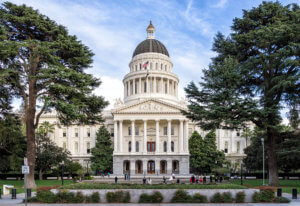
California Senate Bill 825 is aimed at expanding the state’s authority to enforce its consumer finance laws by eliminating an existing exemption for persons licensed by the Department of Financial Protection and Innovation (DFPI) if they engage in certain prohibited practices in connection with consumer financial products or services.
The bill was approved by the Senate Banking and Financial Institutions Committee on April 2, 2025, and is currently pending review by the Senate Judiciary Committee.
This update will provide an overview of SB 825, detailing its key provisions, examining the expanded enforcement authority it grants to the DFPI, and exploring how this legislation may address potential gaps in consumer finance enforcement authority left by the recent shift in regulatory priorities on the federal level.
A Summary of Key Provisions and Impact
California Senate Bill 825 (SB 825), introduced in the 2025-2026 Regular Session with the title “Consumers: financial protection” and amended on March 24, 2025, seeks to amend Section 90002(b) of the California Financial Code, which is part of the California Consumer Financial Protection Law (CCFPL). Read more
LAFCU’s $10K Innovation for Education Grant to Fund School Improvements
 LAFCU is once again inviting Michigan K-12 schools to apply for its Innovation for Education grant by April 30 for a chance to receive $10,000 to enhance their learning environment. Schools can use the grant for flexible seating, updated technology, equipment upgrades, or special projects such as a school garden or sensory room.
LAFCU is once again inviting Michigan K-12 schools to apply for its Innovation for Education grant by April 30 for a chance to receive $10,000 to enhance their learning environment. Schools can use the grant for flexible seating, updated technology, equipment upgrades, or special projects such as a school garden or sensory room.
Now in its second year, the LAFCU Innovation for Education (LIFE) grant continues to demonstrate the credit union’s commitment to enhancing education by awarding $10,000 to support schools in creating a more engaging and enriching environment for both students and staff.
“We recognize the challenges schools face in securing funding for essential improvements,” said Shelia Scott, LAFCU’s community financial education and business development officer. “This grant is designed to help create a more engaging and supportive educational space for students and teachers alike.” Read more
A Century of Service: Metro Credit Union Has Helped Generations of Massachusetts Families Achieve Their Financial Dreams.
“Everything we do revolves around the concept of ‘people helping people,'” says Robert Cashman, president and CEO of Metro Credit Union.
 “As a not-for-profit financial institution, we have a different structure and philosophy than you would find at a bank. This gives us the opportunity to create products and services for our members rather than generating the highest profits for shareholders.”
“As a not-for-profit financial institution, we have a different structure and philosophy than you would find at a bank. This gives us the opportunity to create products and services for our members rather than generating the highest profits for shareholders.”
Founded in 1926, Metro Credit Union is the largest state-chartered credit union in Massachusetts. Serving more than 220,000 members, the credit union boasts 18 locations throughout the Greater Boston area. Over his more than 40 years at the credit union, Cashman has seen Metro’s community-driven model benefit countless individuals, families, and small businesses.
“We’ve grown and thrived over the last century because we’ve stuck to our founding principles,” Cashman says. “We are owned by our members, and we’re here to serve them. Any revenue we make is returned to them in the form of better rates on deposit accounts, lower fees, and more affordable loans.” Read more
Early Returns ‘Exceeded Expectations’ for DFCU’s First Bank Buy
Tyfone
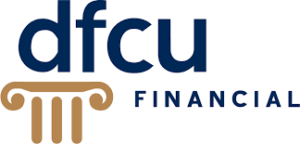 Credit unions buying community banks has been a hot topic across both industries for years.
Credit unions buying community banks has been a hot topic across both industries for years.
Less discussed, however, is whether the buyers involved in these transactions are ultimately finding what they are looking for. DFCU Financial in Dearborn, Michigan, for one, said so far things are going better than it anticipated.
The credit union has acquired two community banks in recent years. First, the $6.7 billion asset company – the third largest credit union based in Michigan – in early 2023 bought $689 million-asset First Citrus Bank in Tampa, Florida. Then last November DFCU announced its second whole bank acquisition in the Sunshine State with the purchase of $794 million-asset Winter Park National Bank in Winter Park. That deal has yet to close. Read more
Apr. 4, 2025 News Around the States
- Swipe Fee Foes Find Legislative Support in Almost a Dozen States
- ABA Moves for Summary Judgment in Illinois Interchange Lawsuit
- Credit Unions Converting to Mutual Banks – a New Paradigm
- West Virginia’s BTC Reserve Bill Is ‘Freedom’ from a CBDC — State Senator
- NC House Passes League-Supported Bill to Expand Credit Union Access In “Banking Deserts”
Swipe Fee Foes Find Legislative Support in Almost a Dozen States
Justin Bachman, Payments Dive
 The battle to curb interchange fees has migrated from Illinois across the nation, with bills in 11 states seeing robust lobbying.
The battle to curb interchange fees has migrated from Illinois across the nation, with bills in 11 states seeing robust lobbying.
Inspired by an Illinois law, legislators in multiple states are working to ban card swipe fees on sales tax and gratuities, with proposals pushed by retailers and restaurateurs gaining momentum.
In recent years, merchants of all sizes have decried rising fees for customers’ credit and debit card transactions, propelling the efforts to curb interchange application to portions of consumer payments. Illinois enacted a law in 2024 to eliminate swipe fees on taxes and tips beginning July 1, 2025.
This year, 11 states including California, Colorado, Nevada, Texas and Vermont, are considering bills that carry “the highest threat of enactment,” according to the Electronic Transactions Association, which is hustling to block them. The ETA counts card issuers, processors and networks as members, including Bank of America, Fiserv, Mastercard and Visa.
“We are operating on high alert in all these states,” Scott Talbott, the ETA’s executive vice president, said Thursday. “Bills move quickly in state legislatures so we have to move even quicker.” This year, lawmakers in 10 other states have effectively scuttled bills seeking to ban swipe fees on taxes and tips, according to the ETA. Read more
ABA Moves for Summary Judgment in Illinois Interchange Lawsuit
ABA Banking Journal
Issue: Should the district court grant the American Bankers Association’s motion for summary judgment and permanently enjoin enforcement of the Illinois Interchange Prohibition Act (IFPA)?
Case Summary: ABA and its co-plaintiffs (collectively ABA) moved for summary judgment, asking the court to enjoin enforcement of the IFPA permanently.
The IFPA, which is set to go into effect July 1, 2025, prohibits financial institutions from charging credit and debit card interchange fees on the portions of transactions tied to state and local taxes and tips. The law also restricts the sharing of certain data obtained in the transactions.
ABA sued Kwame Raoul in his official capacity as Illinois attorney general and moved for a preliminary injunction, arguing that the National Bank Act (NBA), Home Owners Loan Act (HOLA), and Federal Credit Union Act (FCUA) preempted the IFPA and that the IFPA conflicts with the Electronic Fund Transfer Act. On Dec. 20, 2024, Judge Kendall issued a partial preliminary injunction blocking enforcement against national banks and federal savings associations, ruling the ABA was likely to win on the merits of its NBA and HOLA preemption claims. However, the court denied relief to federal credit unions because the FCUA likely did not preempt the IFPA and Illinois-chartered institutions due to sovereign immunity. Judge Kendall later extended the injunction to out-of-state state-chartered banks but not to federal credit unions. Read more
Credit Unions Converting to Mutual Banks – a New Paradigm
Jeff Cardone Luse Gorman, PC/Tyfone
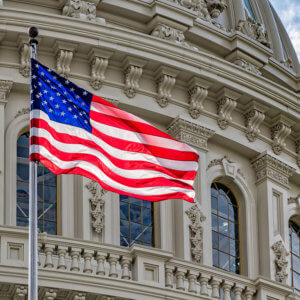 As Congress considers legislation to reform U.S. tax policy, the credit union tax exemption is a frequent topic of debate and a point of contention during tax reform discussions and the reconciliation process that requires finding “pay-fors” to help balance the budget, with credit union taxation being strongly considered as a source of new revenue.
As Congress considers legislation to reform U.S. tax policy, the credit union tax exemption is a frequent topic of debate and a point of contention during tax reform discussions and the reconciliation process that requires finding “pay-fors” to help balance the budget, with credit union taxation being strongly considered as a source of new revenue.
Lawmakers could tax all credit unions on par with banks or establish an asset threshold beyond which credit unions could be taxed, such as $1 billion in assets as recently proposed by bank lobbyists. With the looming threat of taxation, along with calls to consolidate the NCUA with other bank regulators to streamline government bureaucracy, credit unions are asking themselves if without the benefit of the tax exemption, why be subject to the limitations of the credit union charter?
Consequently, several credit unions are now considering the once inconceivable – a mutual bank conversion – to prepare for possibly losing their tax-exempt status and the elimination of the NCUA as an independent regulator. Read more
West Virginia’s BTC Reserve Bill Is ‘Freedom’ from a CBDC — State Senator
Christopher Tepedino, CoinTelegraph
West Virginia’s Bitcoin bill seeks to allow the state treasurer to invest up to 10% of state funds in BTC, stablecoins and precious metals.
West Virginia’s Bitcoin strategic reserve bill would give the state more sovereignty from the federal government and freedom from a potential central bank digital currency (CBDC), State Senator Chris Rose told Cointelegraph in an exclusive interview. The bill, introduced in February, seeks to allow the state treasury to invest up to 10% of public funds in precious metals like gold and silver, stablecoins, or any digital asset that has had a $750 million market capitalization or higher over the last 12 months. Currently, the only digital asset with such a market cap is Bitcoin. Read more
NC House Passes League-Supported Bill to Expand Credit Union Access In “Banking Deserts”
Carolinas Credit Union League, CUInsight
 The North Carolina House of Representatives today passed House Bill 187, a League-advocated measure intended to expand financial service options in areas facing severe bank branch closures.
The North Carolina House of Representatives today passed House Bill 187, a League-advocated measure intended to expand financial service options in areas facing severe bank branch closures.
Sponsored by Reps. Julia Howard, John Bell, Jennifer Balkcom, and Ya Liu, the bill received broad bipartisan support and passed by an overwhelming 101-11 margin. Over the past decade, North Carolina’s most economically distressed counties have lost nearly 40% of bank branches, with about 650 fewer branches statewide than in 2013. Some counties—primarily in eastern North Carolina—now have as few as six branches combined, down from 27.
Currently, credit union membership is limited by defined groups, such as employer or association affiliation. HB 187 would allow credit unions to serve residents in communities with no nearby banking access, providing an alternative to costly financial services like payday lenders and check-cashing businesses. Read more
Mar. 28, 2025 News Around the States
- Washington DFI Warns of Cryptocurrency Scams Involving Fake ‘Investment Education Foundations’ and AI Bots
- Court Overturns Ruling Holding Credit Union Liable for Member Fraud
- Nevada Silver State Schools Credit Union Announces Opening Of $50,000 Middle-Income Down Payment Assistance Program
- Metro Bank to Deploy AI Across Corporate and Commercial Loan Book
Washington DFI Warns of Cryptocurrency Scams Involving Fake ‘Investment Education Foundations’ and AI Bots
 Fake foundations lure investors with promises of education on stocks and cryptocurrency
Fake foundations lure investors with promises of education on stocks and cryptocurrency
The Washington State Department of Financial Institutions (DFI) Securities Division joins the North American Securities Administrators Association members in warning the public about a new investment scam involving fake “investment education foundations.” These fake foundations lure investors with promises of education on stocks and cryptocurrency, “risk-free” trials, and loans. The main goal of the scammers is to persuade investors to invest their own money into the platform as well as take out fake loans, paying exorbitant commissions.
“The rise of fake ‘investment education foundations’ is a concerning trend preying on investors’ desire to reduce the risk of investing in cryptocurrency,” DFI Director Charlie Clark said. “These scams often promise guaranteed returns and sophisticated advice, but they are designed to deceive. It’s crucial for investors to remain vigilant and skeptical of unsolicited offers before handing over their money.”
The scam typically starts with social media ads leading to messaging app groups managed by a fake founder and bots. The founder provides investment lessons, eventually introducing a fraudulent cryptocurrency exchange. Investors are enticed to test a proprietary AI bot with “free” tokens, which generate fake profits, leading to real money investments. If funds are lacking, fake loan providers on the messaging app offer loans deposited directly onto the exchange. Investors can’t withdraw profits until they repay these fake loans or commissions, with accounts frozen for fake regulatory reasons. The scam is eventually shut down and often restarted under new names. Read more
Court Overturns Ruling Holding Credit Union Liable for Member Fraud
CUToday
 Credit unions saw a legal victory with the U.S. Court of Appeals for the Fourth Circuit ruling to overturn a district court decision that a credit union was liable for both compensatory and punitive damages due to fraud perpetrated by a member of the credit union, America’s Credit Unions reported.
Credit unions saw a legal victory with the U.S. Court of Appeals for the Fourth Circuit ruling to overturn a district court decision that a credit union was liable for both compensatory and punitive damages due to fraud perpetrated by a member of the credit union, America’s Credit Unions reported.
The decision confirms that a financial institution is not liable for fraudulent automated clearing house (ACH) payments under Virginia’s Uniform Commercial Code as long as they are not aware of the fraud, ACU said. The appeals court ruled that 1st Advantage Federal Credit Union “has no liability unless it had actual knowledge of the misdescription,” and without evidence, the previous court’s decision was incorrect.
The lawsuit involved a credit union member who transmitted fraudulent emails to the plaintiff, resulting in the plaintiff transmitting several high-value ACH payments to the credit union, which were eventually withdrawn by the member. The U.S. District Court for the Eastern District of Virginia ruled in January 2023 that 1st Advantage violated statute and found it liable for both compensatory damages and punitive damages totaling nearly $760,000. Read more
Nevada Silver State Schools Credit Union Announces Opening Of $50,000 Middle-Income Down Payment Assistance Program
CUInsight
Silver State Schools Credit Union (SSSCU) is excited to announce the opening of applications for its Middle-Income Down Payment Assistance program.
This initiative, supported by the Federal Home Loan Bank of San Francisco, aims to provide up to $10 million in funding to assist middle-income, first-time homebuyers in Nevada, California, and other eligible states. Under this program, qualified applicants may receive up to $50,000 in grant funds to help with down payments and closing costs. The grants will be distributed on a first-come, first-served basis, and interested homebuyers are strongly encouraged to apply early as funding is limited. Read more
Metro Bank to Deploy AI Across Corporate and Commercial Loan Book
Finextra
Metro Bank is to implement an agentic AI platform from Covecta to slash the time taken to process loans across its corporate and commercial credit businesses
Metro Bank says Covecta will be utilised to deliver and complete tasks across the end-to-end loan lifecycle from lead acquisition to servicing, compressing work that might take hours of manual effort into minutes. Early test runs between the bank and the vendor found that each completed task evidenced a 60-80% reduction in time, creating significant improvements in team efficiency, decision making and risk analysis. Read more
Mar. 21, 2025 News Around the States
- Utah Bank Eyes Changes to Boost Fintech Partnership Growth
- Fintech SmartBiz Buys Illinois Bank
- Home Is Where You Make It, But Where Do Loans Live? Circuit Must Decide as Colorado Fights for In-State Rate Caps
- Tennessee Credit Union League and Mississippi Credit Union Association Announce Plans to Pursue Merger
Utah Bank Eyes Changes to Boost Fintech Partnership Growth
John Reosti, American Banker
 Finwise Bancorp in Murray, Utah, has spent the past two years developing a suite of products aimed at boosting its appeal among current and potential fintech partners, seeking to buttress a business model that generates nearly two-thirds of its annual revenue.
Finwise Bancorp in Murray, Utah, has spent the past two years developing a suite of products aimed at boosting its appeal among current and potential fintech partners, seeking to buttress a business model that generates nearly two-thirds of its annual revenue.
Finwise has been active in embedded banking — also known as banking as a service — since 2016. For most of that time, its strategy has been to quickly offload most third-party loans, selling them to fintech partners or investors.
While the $746 million-asset company originated more than $5 billion of loans in 2024 — the lion’s share through fintech partners — its held-for-investment loan portfolio totaled only $465 million at Dec. 31. In 2025, Finwise plans to focus primarily on a new initiative, credit-enhanced strategic lending, under which its bank subsidiary will hold more loans made through fintech partnerships on its balance sheet.
Finwise reported holding about $110,000 of credit-enhanced strategic loans on its balance sheet at the end of 2024. It believes it can add $50 million to $100 million to its portfolio in 2025 via the program. The credit enhancement comes from its plan to retain a slice of interest income the loans generate to pay for credit losses. Finwise will split the remaining interest income with the fintech partners involved in origination. Read more
Fintech SmartBiz Buys Illinois Bank
Caitlin Mullen, Banking Dive

Illinois State Capitol
Initially, the fintech considered obtaining its own charter, but decided it made more sense to find a lender open to acquisition that could complement SmartBiz’s strengths, said CEO Evan Singer.
Dive Brief:
- Financing platform SmartBiz has been granted regulatory approval to acquire United Community Bancshares and its subsidiary, Centrust Bank, both based in Northbrook, Illinois, making SmartBiz the first fintech to become a bank during President Donald Trump’s second term.
- The transaction was approved by the Federal Reserve Bank of Chicago and the Office of the Comptroller of the Currency in February, and closed Friday, SmartBiz CEO Evan Singer said. Centrust’s Northbrook branch will remain, as will the Centrust branding in the Chicago area, operating as a division of SmartBiz Bank, a spokesperson said.
- Singer declined to share the terms of the deal. San Francisco-based SmartBiz has about 100 employees, and the bank has 30; all bank employees will stay on. SmartBiz Bank will be headquartered in Chicago, with administrative offices in San Francisco and Austin, Texas. Read more
Home Is Where You Make It, But Where Do Loans Live? Circuit Must Decide as Colorado Fights for In-State Rate Caps
Amanda Pampuro, Courthouse News Service
 Governor Jared Polis signed the Colorado Uniform Consumer Credit Code on July 1, 2024.
Governor Jared Polis signed the Colorado Uniform Consumer Credit Code on July 1, 2024.
With banking apps offering borrowers access to applications virtually anywhere, it was a matter of time before a judge was asked to clarify where a given loan was technically established. On Tuesday, as Colorado asked the 10th Circuit to reverse a lower court’s injunction blocking it from enforcing statewide interest rate caps, the state argued a loan is made wherever a borrower signs it.
“The banks want to rob Colorado of one of its oldest rights and create a race to the bottom to set up in states with virtually no interest rate caps,” argued Brian Urankar, a senior assistant attorney general.
With the Colorado Uniform Consumer Credit Code in July 2024, the Centennial State capped the interest rates banks can charge local consumers. The National Association of Industrial Bankers, the American Fintech Council and the American Financial Services Association sued the state in March 2024, arguing it lacked the authority to regulate national bank rates governed by the 1980 Depository Institutions of Deregulation and Monetary Control Act. Read more
Tennessee Credit Union League and Mississippi Credit Union Association Announce Plans to Pursue Merger
The Tennessee Credit Union League (TCUL) and the Mississippi Credit Union Association (MSCUA) are excited to announce an intent to consolidate. The effective date of the merger shall be on or before December 31, 2025, subject to the approval of the governing bodies of both associations.
Since February 2023, the two organizations have had a successful strategic alliance that focused on leveraging staffing synergies in education, event support and shared branching services to benefit member credit unions in both states. The boards of directors of both TCUL and MSCUA unanimously approved expanding this alliance by signing a letter of intent to merge.
If approved, the merger will unite 187 credit unions into one trade organization led by Fred Robinson, president and CEO of the Tennessee Credit Union League. Charles Elliott, current president/CEO of the Mississippi Credit Union Association, will serve as chief advocacy officer of Mississippi. Read more
Mar. 14, 2025 News Around the States
- U.S. Consumer Privacy Laws Taking Effect in 2025 and Ensuing Compliance Complexities
- NACUSO Advocacy Update from GAC 2025
- Nebraska Fights for State Control of Stablecoin Rules as Bitcoin ATM Fraud Sparks National Concern
- NCUA Charters Heritage Hub Federal Credit Union to Serve Texas Community
U.S. Consumer Privacy Laws Taking Effect in 2025 and Ensuing Compliance Complexities
Thomas M. Calascibetta of Chuhak & Tecson, P.C/National Law Review
 The United States continues to operate without a comprehensive federal consumer privacy law as the American Privacy Rights Act remains subject to further amendments and uncertainty. Consequently, nineteen states enacted comprehensive consumer privacy legislation, of which eight are becoming or have become effective in 2025, and some existing state privacy laws have been amended since their enactment. This fragmented approach creates compliance complexities and operational considerations for organizations operating at state and national levels.
The United States continues to operate without a comprehensive federal consumer privacy law as the American Privacy Rights Act remains subject to further amendments and uncertainty. Consequently, nineteen states enacted comprehensive consumer privacy legislation, of which eight are becoming or have become effective in 2025, and some existing state privacy laws have been amended since their enactment. This fragmented approach creates compliance complexities and operational considerations for organizations operating at state and national levels.
Comprehensive consumer privacy laws taking effect in 2025
| Effective date | State comprehensive consumer privacy laws |
| January 1, 2025 | • Delaware Personal Data Privacy Act • Iowa Consumer Data Protection Act • Nebraska Data Privacy Act • New Hampshire Senate Bill 255 |
| July 1, 2025 | • Tennessee Information Protection Act |
| July 31, 2025 | • Minnesota Consumer Data Privacy Act |
| October 1, 2025 | • Maryland Online Data Privacy Act |
General requirements across each law
Each state law mandates distinct, jurisdiction-specific obligations on regulated organizations, which generally include the following:
Consumer rights: Each state law grants consumers certain privacy rights. While consumers’ privacy rights vary from state to state, consumers may be granted the right, subject to certain exceptions, to: (1) access, correct and delete data that an organization collects from or about them; (2) opt-out of further data processing; (3) the right to data portability and to direct the transfer of their personal information; and (4) the right to restrict and limit the use and disclosure of sensitive personal information. Read more
NACUSO Advocacy Update from GAC 2025
NASCUSO/CUInsight
 The NACUSO team had a great few days in Washington, D.C., connecting with many of our members, engaging with fintechs and CUSOs, and exploring pain points with credit union leaders. These conversations were invaluable, and we look forward to continuing them at our upcoming conference.
The NACUSO team had a great few days in Washington, D.C., connecting with many of our members, engaging with fintechs and CUSOs, and exploring pain points with credit union leaders. These conversations were invaluable, and we look forward to continuing them at our upcoming conference.
During our time in D.C., we met with all three NCUA board members—Chairman Kyle Hauptman, Board Member Todd Harper, and Board Member Tanya Otsuka. Additionally, we had productive discussions with NASCUS, which has been an excellent partner in advocating for a strong CUSO framework. NASCUS has expressed openness to working with us on developing a model CUSO regulation, reinforcing their commitment to collaboration. As part of our ongoing partnership, NASCUS will also be hosting the 2025 NACUSO Next Big Idea winner at their 60th Annual State System Summit. Read more
Nebraska Fights for State Control of Stablecoin Rules as Bitcoin ATM Fraud Sparks National Concern
Peter Mwangi, Coin Edition
- Nebraska leads in stablecoin regulation with the Nebraska Financial Innovation Act
- Bitcoin ATMs see a rise in fraud, with Illinois proposing new regulations
- President Trump signs an executive order for a national Bitcoin reserve
Nebraska is digging in its heels in regulating digital assets, especially stablecoins. State lawmakers made it clear during a recent hearing: they want to keep stablecoin regulation firmly in state hands.
This stance builds on Nebraska’s efforts, including the Nebraska Financial Innovation Act. This legislation made Nebraska the second state to set up rules for digital asset custody institutions, allowing them to issue stablecoins. Rep. Flood, who championed the Nebraska Financial Innovation Act, told the hearing that any federal stablecoin legislation must respect Nebraska’s existing regulatory framework. The goal? To allow the state to continue its leadership while meeting federal guidelines. Read more
NCUA Charters Heritage Hub Federal Credit Union to Serve Texas Community
NCUA/CUInsight
The National Credit Union Administration has granted a federal charter and Share Insurance Fund coverage to Heritage Hub Federal Credit Union, located in Houston.
“I want to congratulate the organizers for bringing their vision of a cooperative financial services institution to reality,” NCUA Chairman Kyle S. Hauptman said. “Encouraging new charters and streamlining the chartering process have been priorities for me since I joined the NCUA Board. Credit unions have represented financial inclusion for tens of millions of Americans for more than 90 years, and each time we approve a new charter, we are backing the faith people have in themselves to chart their financial futures.” Heritage Hub will primarily serve people who live, work, worship, or attend school in an 84-census-tract community within Harris County, Texas. Read more
Mar. 7, 2025 News Around the States
- New York Lawmakers Introduced a Bill Aiming To Protect Crypto Investors by Criminalizing Rug Pulls and Fraud Schemes Amid Rising Memecoin-Related Scams.
- Virginia’s AI Act Targets ‘High Risk’ AI Systems
- Colorado, Virginia Legislation Would Impact Fintech Lending
- Execs See Pressures Building for More Bank M&A in 2025
- Why These Community Banks Are Betting on Niche Businesses
New York Lawmakers Introduced a Bill Aiming To Protect Crypto Investors by Criminalizing Rug Pulls and Fraud Schemes Amid Rising Memecoin-Related Scams.
Zoltan Vardai, CoinTelegraph
 New York lawmakers have introduced legislation aimed at protecting cryptocurrency investors by targeting rug pull scams, where project insiders abruptly abandon a project and drain investor funds.
New York lawmakers have introduced legislation aimed at protecting cryptocurrency investors by targeting rug pull scams, where project insiders abruptly abandon a project and drain investor funds.
Assemblymember Clyde Vanel, chair of the New York Assembly’s Banks Committee, introduced Bill A06515 on March 5. The bill would establish criminal penalties specifically aimed at preventing cryptocurrency fraud and protecting investors from rug pulls.
Under the proposal, new criminal charges would be created for offenses involving “virtual token fraud,” explicitly targeting deceptive practices associated with cryptocurrencies.
“Virtual tokens” refer to security tokens and stablecoins, while “security tokens” include “any form of fungible and non-fungible computer code by which all such forms of ownership of said computer code is determined through verification of transactions or any derivative method, and that is stored on a peer-to-peer computer network.” Read more
Virginia’s AI Act Targets ‘High Risk’ AI Systems
PYMNTS.com
 Virginia could be the second U.S. state to enact artificial intelligence (AI) regulations targeting high risk AI systems, after Colorado, according to the National Law Review.
Virginia could be the second U.S. state to enact artificial intelligence (AI) regulations targeting high risk AI systems, after Colorado, according to the National Law Review.
The Virginia State Senate recently passed the High-Risk Artificial Intelligence Developer and Deployer Act, which applies to AI systems that autonomously make decisions, or “significantly influence” them. The legislation will affect companies that use these AI systems, including when hiring people. If the legislation is signed into law by Gov. Glenn Youngkin, it will take effect on July 1, 2026.
But Virginia’s AI regulations differ from Colorado’s in one key aspect: AI must constitute the “principal basis” for a decision to trigger anti-discrimination provisions of the law, according to the publication. “This threshold requirement creates a higher bar for establishing coverage than Colorado’s ‘substantial factor’ standard,” the authors wrote.
The legislation focuses on safeguarding consumers from algorithmic discrimination in consequential decisions like those related to lending, housing, education, healthcare and employment. However, even if the user of the AI tool did not mean to discriminate against consumers, the use of the tool alone means they are culpable. Read more
Colorado, Virginia Legislation Would Impact Fintech Lending
Rajashree Chakravarty, Banking Dive
 The FDIC withdrew support for Colorado’s “opt-out” law allowing interstate interest rate exportation, while Virginia’s pending bill would restrict fintech lending statewide.
The FDIC withdrew support for Colorado’s “opt-out” law allowing interstate interest rate exportation, while Virginia’s pending bill would restrict fintech lending statewide.
Recent legislative developments are aimed at closing gaps that allow new financial products to avoid traditional lending regulations, as financial services offerings continue to evolve.
Earlier this week, the Federal Deposit Insurance Corp. withdrew its amicus brief supporting Colorado law that allows state-chartered banks to opt out of federal preemption and follow Colorado’s interest rate cap. The law is currently being challenged in the Tenth Circuit Court.
Meanwhile, a new bill in Virginia, introduced in January, aims to impose a 12% interest rate cap to prevent fintechs from evading usury limits, which cap the amount of interest lenders can charge on loans. The bill awaits sign-off from Gov. Glenn Youngkin. Read more
Execs See Pressures Building for More Bank M&A in 2025
Sam Minton, Banker & Tradesman
 With the Federal Reserve expected to dramatically slow its pace of rate cuts, top Massachusetts bankers say they anticipate more consolidation this year.
With the Federal Reserve expected to dramatically slow its pace of rate cuts, top Massachusetts bankers say they anticipate more consolidation this year.
Research from American Banker and Bain & Company shows that M&A activity is expected to increase. Twenty-five percent of the 212 bank, fintech and credit union executives the magazine surveyed expect their firm to merge with another financial institution within the next year. Bain & Company research reports that the number of banks open to acquiring or actively pursuing acquisitions jumped almost threefold among the top 50 U.S. banks in 2024, year-on-year.
Smaller Banks Facing Bigger Pressures
The Federal Reserve’s interest rate policy has increased margin pressures, Senecal said, and larger institutions are able to better absorb ongoing compliance, technology and labor costs. With M&A activity expected to increase, Metro Credit Union President and CEO Robert Cashman noted that he expects out-of-market institutions, as well as local brands, to strike deals in 2025.
“It will be not only local institutions coming together, which makes sense, but at the same time, you’re going to see organizations from outside of our geographic area wanting to come into the local Massachusetts area and, as such, you can see some new players entering into the marketplace,” he said. Read more
Why These Community Banks Are Betting on Niche Businesses
Jim Dobbs, American Banker
 Community banks eager to generate growth in the face of stubbornly high interest rates — and the potential for reignited inflation — are focusing on key specialties they believe are relatively safe from economic volatility.
Community banks eager to generate growth in the face of stubbornly high interest rates — and the potential for reignited inflation — are focusing on key specialties they believe are relatively safe from economic volatility.
President Donald Trump imposed new tariffs on Chinese imports this year and has threatened steep levies on Canada, Mexico and other countries in part to gain leverage in border-security talks.
While Trump’s vows to shore up porous borders helped him win the presidential election, some bankers worry that tariffs could reignite inflation that reached 9% in the wake of the COVID-19 pandemic. It took more than two years for the Federal Reserve to bring inflation down below 3%, largely by jacking up interest rates.
The Fed cut rates three times in the second half of 2024, but inflation ticked back up to 3% in January — above the Fed’s 2% target — and bankers have since been cautioning that the cost of tariffs could get passed along to consumers and spark fresh inflation flames. Read more
Feb. 28, 2025 News Around the States
- Current Credit Union Matters Unfolding in D.C.
- Protecting the Credit Union and Cooperative Model in a Year of Uncertainty
- InRoads Credit Union Donates Nearly $160,000 In Community Support During 2024
- Former Credit Union Employee Sentenced for Swapping Real Money for Counterfeit Currency
Current Credit Union Matters Unfolding in D.C.
Emily Claus, CUSO Magazine
 It’s no secret that the last month in the nation’s capitol has been a flurry of activity, changes, and grand sweeping executive orders.
It’s no secret that the last month in the nation’s capitol has been a flurry of activity, changes, and grand sweeping executive orders.
With the constantly shifting policies, organizational reforms, and shuttered departments, many are struggling to keep track of all the changes and how these modifications affect them. Credit unions have not been immune to these reforms either, and trying to figure out how each of these decisions may or may not affect credit union regulations now and in the future can be overwhelming. So today, let’s cover some of the larger credit union topics ongoing in D.C. right now.
The state of the CFPB and overdraft
We covered this topic in a recent article, but the changes to the CFPB came even faster than previously anticipated. While the CFPB staff was quickly laid off and the organization shuttered, credit union trade groups and advocates are not confident this is a permanent change and are continuing legal processes to halt the CFPB’s overdraft and credit card late fee rule.
America’s Credit Unions filed a lawsuit against the rule the day it was issued, though the CFPB has filed a motion to request a stay in these hearings, due to the agency’s change in leadership.
America’s Credit Union’s CEO and President, Jim Nussel, did not go so far as to agree with shuttering the agency, but he did call for it to return to its intended purpose: keeping consumers safe from bad actors and fraudulent financial institutions. Additionally, he called for the agency to use its power to exempt credit unions from these regulations and rulings.
Furthermore, an executive order from just last week would require the CFPB to entirely eliminate the Credit Union Advisory Council, which served as an essential source of communication between the organization and the credit union industry. The termination of this communication pathway would remove the seat at the table for credit union advocacy groups to share how CFPB rulings would impact credit unions and their members.
While America’s Credit Unions spoke out against this change as well, the order remains in place. Though should the CFPB remain stagnant and shuttered, it may not matter much in the end.
Fighting for tax exemption
Since the passing of the Federal Credit Union Act, credit unions have been fighting to keep their tax-exemption status. The newest attack came from Republican lawmakers last month, who in a 50-page document on ways to cut costs listed removing the credit union tax exemption as a means to increase revenue by $30 billion over ten years. Read more
Protecting the Credit Union and Cooperative Model in a Year of Uncertainty
Greg Neumann, World Council of Credit Unions
 WOCCU International Advocacy releases 2025 Global Regulatory Update
WOCCU International Advocacy releases 2025 Global Regulatory Update
With a vast amount of regulatory uncertainty resulting from an unprecedented number of newly elected officials across the globe and an International Year of Cooperatives’ mission to fulfill—2025 will be a critical year for credit union advocacy worldwide. That is the overriding theme of World Council of Credit Unions’ (WOCCU) 2025 Global Regulatory Update, which stresses how divergent messages relating to whether previously held financial laws will be honored or revoked, and how global leaders embrace or reject international standards will impact the regulatory landscape this year and beyond.
World Council’s Global Regulatory Update is put out on an annual basis to help credit unions and financial cooperatives prepare for the compliance issues most likely to impact them in the year ahead. The new edition also covers several other leading regulatory issues affecting credit unions across the globe, including:
- Digitalization and Developing Technologies.
- Climate-related Financial Risks.
- Strengthening Individual Frameworks.
Read World Council’s 2025 Global Regulatory Update here.
InRoads Credit Union Donates Nearly $160,000 In Community Support During 2024
 InRoads Credit Union, in partnership with its members and employees, contributed $159,891 towards 52 local charitable organizations and schools in 2024.
InRoads Credit Union, in partnership with its members and employees, contributed $159,891 towards 52 local charitable organizations and schools in 2024.
While expanding its presence with a new branch in Hillsboro, InRoads directed its resources to make a positive impact in Columbia, Washington and Multnomah counties. Of the total contributions, $116,529 supported local schools and $43,362 benefited nonprofit organizations.
InRoads Credit Union offers three high school themed debit cards through its innovative Team Up for Schools program. InRoads automatically contributes five cents from each debit card transaction to the corresponding school. In 2024, the program raised $116,529 to support those local schools. In addition to financial contributions, InRoads employees volunteered their time to support local nonprofits. Strengthening its partnership with With Love Oregon, InRoads provided hair care kits for foster children, among other community initiatives. Read more
Former Credit Union Employee Sentenced for Swapping Real Money for Counterfeit Currency
MTN News, 8KPAX
A former Missoula credit union employee who admitted to embezzling approximately $389,000 from the vault by swapping real money with fake funds has been sentenced to prison.
Acting U.S. Attorney Timothy J. Racicot announced Edward Arthur Nurse, 35, of Missoula was sentenced Tuesday to six months in prison, to be followed by five years of supervised release, and ordered to pay $389,000 restitution. Nurse pleaded guilty in October 2024 to an indictment charging him with theft from a credit union.
Prosecutors alleged in court documents that Nurse embezzled from Park Side Credit Union in Missoula from about July 2023 to June 2024. An employee found that $340,000 in cash in the credit union’s vault had been replaced with fake funds from a company that provides fake currency as props for movies and entertainment productions in June 2024. Nurse used his position as “team lead” for the vault to swap the credit union’s cash with fake money he purchased specifically for this purpose, according to a news release. Read more
Feb. 21, 2025 News Around the States
- Illinois Swipe Fee Injunction Extended to Cover Out-Of-State Banks, But Not Federal Credit Unions
- Report: Credit Union Credit Quality Hits 11-Year Low In 2024
- Kansas Bank Official Calls for Repeal of State Law Granting Charter to Unique Financial Entity
- Blue Federal Credit Union Donates Over $150,000 to Children’s Hospital Colorado
Illinois Swipe Fee Injunction Extended to Cover Out-Of-State Banks, But Not Federal Credit Unions
John Culhane Jr., Kristen Larson, Ronald Vaske; Ballard Spahr LLP/JD SUpra
 Chief Judge Virginia Kendall of the Northern District of Illinois has extended her preliminary injunction prohibiting Illinois from enforcing the Illinois Interchange Fee Prohibition Act (the “IFPA”) to cover out-of-state banks conducting business in the state.
Chief Judge Virginia Kendall of the Northern District of Illinois has extended her preliminary injunction prohibiting Illinois from enforcing the Illinois Interchange Fee Prohibition Act (the “IFPA”) to cover out-of-state banks conducting business in the state.
Judge Kendall already had ruled that Illinois could not enforce the IFPA on nationally chartered banks and federal savings associations but requested additional briefing with respect to federal credit unions and out-of-state banks.
In extending the preliminary injunction to out-of-state banks, she concluded that IFPA is also likely preempted under the Riegle-Neal Interstate Banking and Branching Efficiency Act since she had previously concluded that the National Bank Act likely preempts the IFPA. The Riegle-Neal Act ensures that out-of-state state banks can compete with nationally chartered banks and forcing out-of-state state banks to comply with the IFPA would violate the plain statutory language.
However, Judge Kendall refused to extend the preliminary injunction to cover federal credit unions, stating that after applying conflict preemption analysis, she was not persuaded that the Federal Credit Union Act likely preempts the IFPA. Read more
Report: Credit Union Credit Quality Hits 11-Year Low In 2024
Tyfone
 Most of the largest credit unions in the U.S. reported an increase in problem assets last year, an S&P Global study found.
Most of the largest credit unions in the U.S. reported an increase in problem assets last year, an S&P Global study found.
An early look at comprehensive U.S. credit union industry data for 2024 reveals some less-than-favorable trends. S&P Global Market Intelligence, which tracks the industry through call reports, reported that delinquent loan and charge-off ratios reached their highest levels since 2013 last year.
Loans delinquent for at least 60 days as a portion of total loans and leases rose to 0.97% at year end compared to 0.83% at the end of 2023. That marked the highest level that metric has reached since it hit 1.01% at the end of 2013. The National Credit Union Administration also compiles and distributes comprehensive industry data, but the final 2024 data has not yet been published.
The S&P analysis also found that net charge-offs as a percentage of average loans hit a 13-year high in 2024 at 0.80%. That figure sat at 0.61% a year earlier. Credit cards and used vehicle loans were the primary culprit, the firm found. Speaking of vehicle loans, balances for new cars were down $11.1 billion, or 6.3%, on a year-over-year basis. Used vehicle loans performed somewhat better last year, although balances declined $5.8 billion, or nearly 2%. Read more
Kansas Bank Official Calls for Repeal of State Law Granting Charter to Unique Financial Entity
Texas company requests bill broadening special regulatory treatment
Tim Carpenter, Kansas Reflector

The Kansas banking commissioner wants the Legislature to repeal a 2021 law creating a unique state-chartered financial institution that has repeatedly pleaded with lawmakers for greater operational independence and less regulatory oversight.
Commissioner David Herndon questioned viability of the alternative asset management company known as Beneficient Fiduciary Financial. It stands as the nation’s only TEFFI, or technology-enabled fiduciary financial institution. The Legislature awarded the charter to Beneficient Fiduciary Financial in anticipation of an influx of comparable TEFFIs in Kansas, but that surge didn’t occur.
Herndon’s frustration surfaced when Derek Fletcher, president and chief fiduciary officer of Beneficient Fiduciary Financial, asked the House Financial Institutions and Pensions Committee to endorse more state regulatory changes packaged in House Bill 2235.
Blue Federal Credit Union Donates Over $150,000 to Children’s Hospital Colorado
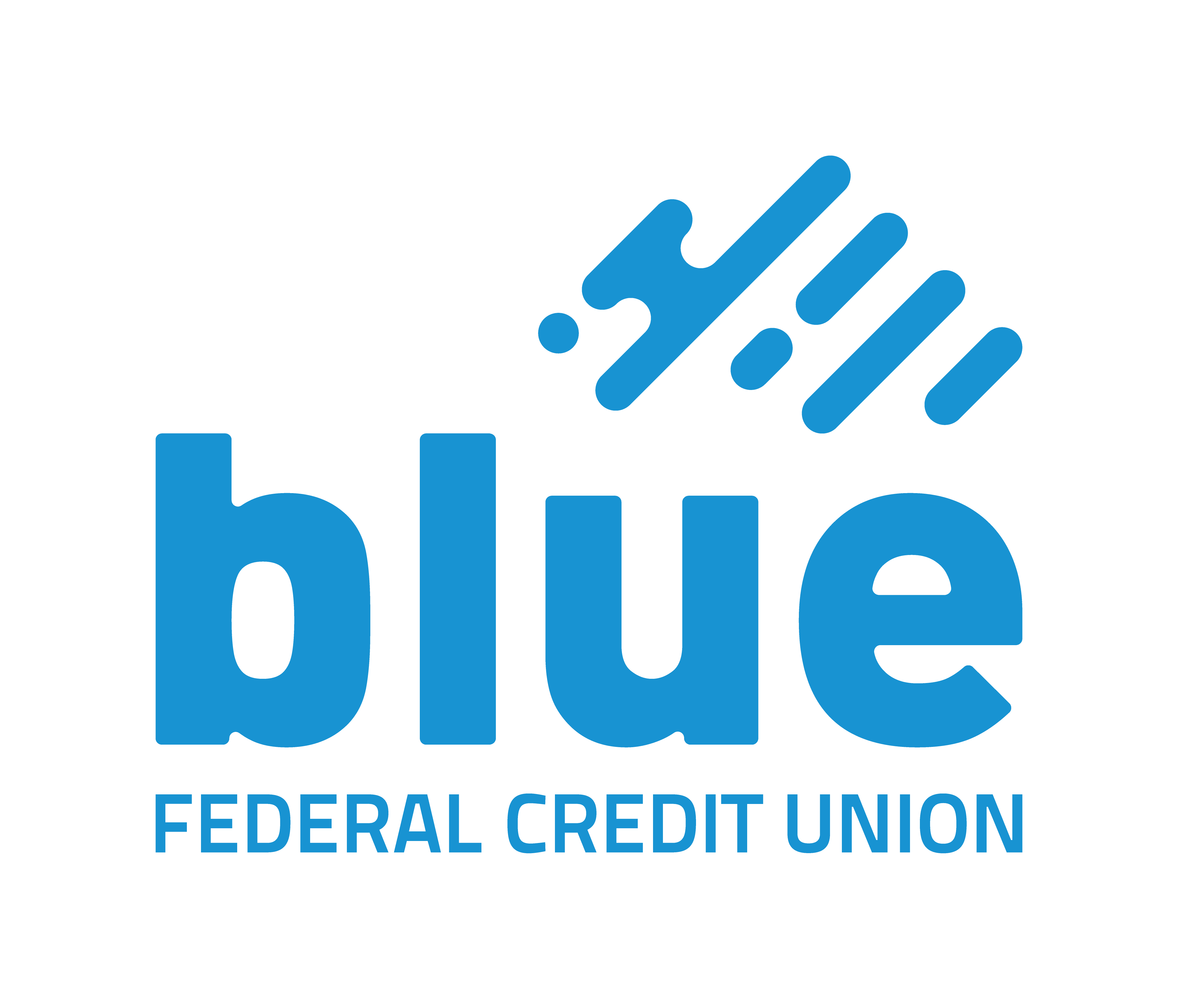 Blue Federal Credit Union is proud to announce a remarkable milestone in its ongoing commitment to community impact: over $150,000 has been donated to Children’s Hospital Colorado in the past five years.
Blue Federal Credit Union is proud to announce a remarkable milestone in its ongoing commitment to community impact: over $150,000 has been donated to Children’s Hospital Colorado in the past five years.
In 2024 alone, over $45,000 was contributed to support the hospital’s mission of providing exceptional pediatric care.
These donations are made possible through Blue’s Skip-a-Pay program, where members have the option to skip a loan payment for a small fee. For every Skip-a-Pay request, $5 of the fee charged is directly allocated to Children’s Hospital Colorado. This initiative not only offers members financial flexibility but also creates meaningful change in the local community by supporting a vital resource for children and families. Read more
Feb. 14, 2025 News Around the States
- PA Gov. Shapiro Looks to Legalize — and Tax — Marijuana to Balance State Budget
- Governor Newsom Announces Khalil “KC” Mohseni, of Sacramento, Appointed Commissioner of the California Department of Financial Protection and Innovation
- Idaho Department of Finance Information Technology Announcement
- Missouri CUs Merge to Cross Critical $1B Mark
- In Wisconsin: Credit Union Staff and Detectives Stop $25K Scam, Protect Residents’ Savings
- Sandia Area Federal Credit Union Raises 1.37 Million Meals for New Mexico Families
PA Gov. Shapiro Looks to Legalize — and Tax — Marijuana to Balance State Budget
Carmen Russell-Sluchansky, WHYY.org
 Pennsylvania customers make up 60% of purchasers at some out-of-state cannabis shops, Shapiro said. He wants those buyers to stay in Pa.
Pennsylvania customers make up 60% of purchasers at some out-of-state cannabis shops, Shapiro said. He wants those buyers to stay in Pa.
In his third budget proposal, Pennsylvania Gov. Josh Shapiro has, once again, proposed legalizing recreational marijuana. “Twenty-four states have already legalized adult-use cannabis. That includes almost every single one of our neighbors,” Shapiro told legislators as he presented his budget Tuesday afternoon, adding that as much as “60%” of customers in New Jersey, Maryland and New York are from the commonwealth.
“Pennsylvanians who want to buy cannabis are just driving across the border to one of our neighbors,” he said. Shapiro said it was a “hard” decision to make “as a father of four and as the former chief law enforcement officer of this commonwealth,” but added that he “took the time to study it and understand the impacts.”
The governor argued that such legalization would generate $1.3 billion in new tax revenue over five years. He also proposed regulating and taxing “so-called skill games” — slot machines found in bars and other establishments around the state. The governor’s office estimates that there are as many as 70,000 machines across the commonwealth.
Unlike the official lottery, they are unregulated and provide no tax benefits. Shapiro wants to tax them at a rate of 52% with 47% going to the General Fund and the rest to the Lottery Fund, which is used for programs that benefit older residents such as rent rebates, transportation subsidies, low-cost prescriptions and care services. Read more
Governor Newsom Announces Khalil “KC” Mohseni, of Sacramento, Appointed Commissioner of the California Department of Financial Protection and Innovation
 Governor Gavin Newsom today announced the following appointment: Khalil “KC” Mohseni, of Sacramento, has been appointed Commissioner of the California Department of Financial Protection and Innovation, where he has been the Chief Deputy Director since 2023.
Governor Gavin Newsom today announced the following appointment: Khalil “KC” Mohseni, of Sacramento, has been appointed Commissioner of the California Department of Financial Protection and Innovation, where he has been the Chief Deputy Director since 2023.
Mohseni was the Chief Operating Officer at the State Controller’s Office from 2022 to 2023. He was the Deputy Director of Administration at the California Department of Housing and Community Development from 2020 to 2022.
Mohseni was a Project Director of Business at the Business, Consumer Services, and Housing Agency from 2018 to 2019. He was the Chief Fiscal officer at the Board of State and Community Corrections from 2015 to 2018. Mohseni earned a Juris Doctor degree from the University of California, Davis School of Law, and a Bachelor of Arts degree in Political Science from the University of California, Irvine. This position requires Senate confirmation, and the compensation is $224,868. Mohseni is registered without party preference.
Idaho Department of Finance Information Technology Announcement
 The purpose of this notice is to inform you of an upcoming change in the manner in which the Idaho Department of Finance (Department) will assign ratings for certain Idaho state-chartered credit unions at examinations. Specifically, for credit unions with total assets at or above $50 million as of the most recent year-end period, the Department will assess “Information Technology” within its own component rating (“IT”) rather than as a factor within the “Management” or “M” component rating. The IT rating will conform to the enclosed composite IT rating definitions from the Uniform Rating System for Information Technology (URSIT). This change will go into effect for all examinations commencing after January 1, 2026.
The purpose of this notice is to inform you of an upcoming change in the manner in which the Idaho Department of Finance (Department) will assign ratings for certain Idaho state-chartered credit unions at examinations. Specifically, for credit unions with total assets at or above $50 million as of the most recent year-end period, the Department will assess “Information Technology” within its own component rating (“IT”) rather than as a factor within the “Management” or “M” component rating. The IT rating will conform to the enclosed composite IT rating definitions from the Uniform Rating System for Information Technology (URSIT). This change will go into effect for all examinations commencing after January 1, 2026.
The URSIT rating system was approved by the Federal Financial Institutions Examination Council (FFIEC) in 1978 and, shortly after that time, the IT rating system was adopted by all Federal supervisory agencies that comprise the FFIEC with the exception of the NCUA. The URSIT rating system is used to uniformly assess and rate IT-related risks of financial institutions. The rating system is used to evaluate the examined institution’s overall risk exposure and risk management performance and determine the degree of supervisory attention necessary to ensure weaknesses are addressed and risks are effectively managed. The assigned rating determines the degree of supervisory attention necessary. Read more
Missouri CUs Merge to Cross Critical $1B Mark
Tyfone
River Region Credit Union in Jefferson City and Missouri Credit Union in Columbia plan to merge and form an institution with 80,000 members and nearly $1.3 billion of assets.
The credit unions announced late last week that the National Credit Union Administration approved their proposed tie-up, which now heads to the members of Missouri Credit Union for a vote. Those ballots must be received by March 27. The organizations expect the merger to become official in April with their systems integrated by November.
“This merger represents one of the most promising opportunities for the credit union’s future in 45 years. Your ‘yes’ vote is a vote for growth, stability, and the long-term success of our community,” said Hal James, Missouri CU’s president and CEO. The jump above the $1 billion-asset mark cannot be discounted. Read more
In Wisconsin: Credit Union Staff and Detectives Stop $25K Scam, Protect Residents’ Savings
Chad Thompson, WKOW
Detectives with the Dane County Sheriff’s Office report they recently helped put a stop to an attempt to scam an elderly woman out of her savings.
This week, a Connexus Credit Union branch manager contacted a detective about an older woman attempting to withdraw $25,000 under suspicious circumstances, according to a press release. The detective quickly responded and found that the woman was being scammed. The scam began with a pop-up alert on her computer, instructing her to call a number supposedly for “Microsoft.”
The scammers convinced the woman that her computer was compromised and instructed her to withdraw a total of $35,000 from two bank branches. They planned for her to deposit the money into a cryptocurrency ATM to “protect” her funds. Thanks to the detective’s intervention and the credit union staff’s vigilance, the woman avoided losing a significant amount of money, according to the sheriff’s office. Read more
Sandia Area Federal Credit Union Raises 1.37 Million Meals for New Mexico Families
Sandia Area Federal Credit Union is proud to announce a major milestone in its mission to support local families and children in need, raising enough funds to provide over ONE MILLION MEALS in partnership with Storehouse New Mexico!
This remarkable achievement was made possible through the annual Storehouse New Mexico F.A.C.E. (Feeding Area Children Everyday) campaign—a heartfelt collaboration between the food pantry and Sandia Area designed to fight hunger and ensure New Mexico families can thrive year-round.
Fueled by the passion and generosity of Sandia Area members, employees, and community supporters, this year’s campaign raised an astounding $224,319. Combined with Sandia Area’s $50,000 donation match, the total reached a record $274,319. In addition, employees and members contributed more than 1,000 pounds in food donations. These contributions marked a 65% increase in funds raised compared to last year, despite the rising economic challenges faced by many New Mexicans. Read more
Feb. 7, 2025 News Around the States
- Scam Surge: How Credit Unions Are Tackling Rising Security Threats
- The Economic Impact of Credit Unions
- Virginia Bank Prescribes Cannabis to Close Revenue Gap
- Washington State Department of Financial Institutions 2025 Exam Focus Bulletin
- VyStar Credit Union Unveils ‘Through Your Life’ Campaign: Empowering Members to Bank Better at Every Life Stage
Scam Surge: How Credit Unions Are Tackling Rising Security Threats
Pymnts.com
 As fraud incidents soar, credit unions are racing to implement cutting-edge technologies and forge partnerships to safeguard their finances and uphold member trust.
As fraud incidents soar, credit unions are racing to implement cutting-edge technologies and forge partnerships to safeguard their finances and uphold member trust.
- CUs face surging fraud, including check scams and data breaches, costing millions. High-profile incidents highlight the impact, with 79% of CUs reporting substantial losses and many experiencing sharp rises in scam incidents.
- CUs are prioritizing innovative anti-fraud technologies, with 43% citing fraud mitigation as a top investment area. New solutions enhance security, addressing rising fraud and aligning with members’ growing demand for safety-focused innovations.
- CUs are increasingly leveraging partnerships to enhance security and fight fraud. With 42% prioritizing fraud reduction when collaborating with FinTechs, these partnerships are key to meeting member expectations and advancing innovation.
Fraud is becoming a costly and pervasive challenge for credit unions (CUs), eating into revenues. From check scams to cyber breaches, these attacks represent a growing issue, at times amplified by fraudsters sharing tactics online. The financial and reputational fallout is severe, with some CUs facing member dissatisfaction and widespread losses.
Now, many institutions are prioritizing investment in advanced fraud-fighting technologies and looking to external partnerships to bolster defenses. With fraudsters continually adapting their tactics, CUs face an urgent need to enhance security and reinforce trust to protect their communities and futures. Read more
The Economic Impact of Credit Unions
 GoWest commissioned Oxford Economics for an analysis of credit unions’ economic impact in Arizona, Colorado, Idaho, Oregon, Washington, and Wyoming. The analysis measures credit unions’ economic impacts in terms of GDP, employment, and wages.
GoWest commissioned Oxford Economics for an analysis of credit unions’ economic impact in Arizona, Colorado, Idaho, Oregon, Washington, and Wyoming. The analysis measures credit unions’ economic impacts in terms of GDP, employment, and wages.
One-third of the American population has a credit union membership. Credit unions provide critically needed financial services to their members, such as savings and checking accounts, consumer loans, and mortgages. Unlike for-profit banks, earnings made by credit unions are returned to their members in the form of benefits such as reduced fees, higher savings rates, lower loan interest rates, and dividends.
GoWest Credit Union Association commissioned Oxford Economics to perform this study, which quantifies the economic impacts of credit unions in Arizona, Colorado, Idaho, Oregon, Washington, and Wyoming in terms of GDP, employment, and wages.
Each report documents the economic contribution of credit unions in one of the six states. Read more
Virginia Bank Prescribes Cannabis to Close Revenue Gap
John Reosti, American Banker
 MainStreet Bancshares in Fairfax, Virginia, is pinning its hopes on cannabis as a solution to the revenue woes that have dampened the rollout of its banking-as-a-service subsidiary.
MainStreet Bancshares in Fairfax, Virginia, is pinning its hopes on cannabis as a solution to the revenue woes that have dampened the rollout of its banking-as-a-service subsidiary.
After unveiling it in 2021, the $2.2 billion-asset MainStreet touted its Avenu unit as a unique BaaS solution. MainStreet operates Avenu without third-party fintech partners. MainStreet maintains tight control of the ledger that records daily transactions, along with customer identification and other critical regulatory functions.
Though its compliance-centric mindset has helped MainStreet neatly sidestep issues that have vexed other bank embedded-finance ventures — pushing some out of the space altogether — market adoption has proven a different story. More than three years in, Avenu has one fully operational customer. While several more are advancing through the pipeline, bottom-line results have fallen short of projections. Read more
Washington State Department of Financial Institutions 2025 Exam Focus Bulletin
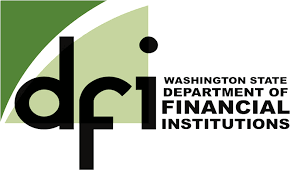 On January 30, the Division of Credit Unions issued its annual exam focus bulletin, Bulletin B-25-02. This bulletin details some of the areas of review the Division will focus on during examinations in 2025.
On January 30, the Division of Credit Unions issued its annual exam focus bulletin, Bulletin B-25-02. This bulletin details some of the areas of review the Division will focus on during examinations in 2025.
Topics include Succession Planning, Balance Sheet Management and Liquidity, Interest and Credit Risks, Consumer Compliance and Information Security & Technology (IS&T). The bulletin also explained what to expect on exams for those credit unions that bank cannabis.
VyStar Credit Union Unveils ‘Through Your Life’ Campaign: Empowering Members to Bank Better at Every Life Stage

From a first savings account to planning for retirement, and all the moments in between, VyStar supports every milestone, helping members achieve financial confidence and a brighter future. “Through Your Life”highlights that banking is about shared experiences, meaningful connections and making a lasting difference. Read more